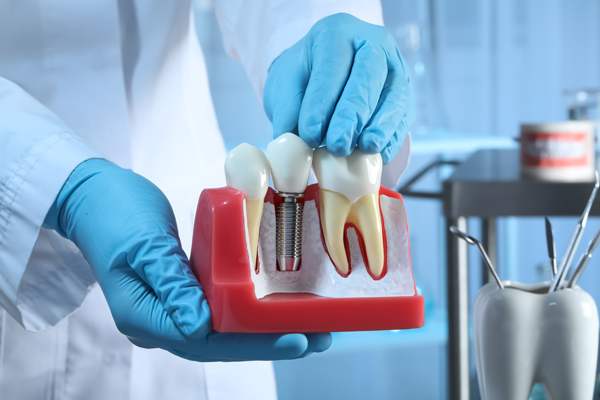What Happens After Dental Implants Are Placed?

There is a lot to think about when it comes to dental implants. This tooth-replacement treatment is an effective way to revitalize your smile and restore the ability to chew. The process can take several months, and the recovery can be lengthy. As you learn more about this procedure, you can make the right decision for your health and appearance. You should also know how to care for and maintain the implants after the surgery.
The benefits of dental implants
Tooth loss can be an embarrassing situation. Having gaps in the mouth can cause a person to avoid opening their mouth or even being around other people. Implants give people a natural-looking way to overcome these concerns. Implants consist of three parts: a screw-like titanium post, a smaller piece called an abutment, and a crown. The crown will look like the remaining surrounding teeth in size, shape, and color.
Not only does an implant improve a person’s smile, but it also has health benefits. Implants allow the individual to bite into most foods and eat healthier foods. Implants prevent the loss of surrounding teeth. They are also strong and durable, lasting up to 20 years or more.
Placing the posts
After taking X-rays and making impressions of the mouth, the dentist will numb the patient. The dentist then makes an incision in the gums and inserts the posts into the jaw. The patient must have good bone growth to provide stability for the posts. If there is poor bone growth or bone loss, the dentist will do a bone graft. After the posts are in place, there will be a period of a few months for the patient to heal.
The next steps
The abutment attaches to the post and is visible just above the gums. The dentist must once again numb the patient and cut into the gums to expose the tops of the posts. The patient will spend the next few months healing before getting the crown. The dental crown fits onto the abutment. It looks like a natural tooth in size, shape, and color. It can also withstand the wear and tear of a normal tooth.
Follow-up
Once the dentist has placed the crown on the dental implants, there will be follow-up appointments. At these visits, the dentist will make sure the fit is comfortable. The dentist will examine the patient and check on the person’s recovery. The dentist can make any adjustments to the crown if necessary.
Caring for the implants
After the procedures, the patient must be cautious about eating certain foods. Implants allow the person to eat most items, but sticky, hard, and chewy foods can damage the crowns, abutments, or posts. Continual oral hygiene is important too. The patient should brush the crown twice a day. Daily flossing will also extend the life span of the dental implants.
Get the most out of your treatment
With the right attention, your dental implants should work effectively for years to come. Your general dentist will also work closely with you. Together, you can ensure that you are getting the results you want. If you are ready to change your smile and improve your health, call your dentist today.
Request an appointment here: https://www.doctorsmilehsd.com or call Hollywood Smile Dental at (516) 544-1445 for an appointment in our Rockville Centre office.
Check out what others are saying about our dental services on Yelp: Dental Implants in Rockville Centre, NY.
Related Posts
If you are looking to replace several teeth due to decay, infections, disease, injury, or other loss, then you may be looking for your options for a dental implant. The good news is that these procedures have been done frequently, and therefore, a lot of knowledge is known about the process and what to expect.…
People who have been recommended to get dental implants may be wondering how to take care of them after surgery. Implants are artificial teeth held in place by metal posts positioned in the gums. They are constructed to look and function like natural teeth; thus, managing them is similar to caring for regular teeth. Once…
Patients with obstructive sleep apnea and snoring can wear oral appliances at night to sleep better. The devices look like sports mouthguards or orthodontic retainers. Oral appliance therapy entails choosing, designing, fitting and customizing an oral device to wear while sleeping. The oral appliance will help prevent the obstruction of the air passage caused by…
A deep dental cleaning is a great way to improve your periodontal health, particularly for patients who have periodontitis (an advanced form of gum disease). The following is a review of when a deep dental cleaning (also called a scaling and root planing) might be recommended. The most notable signs that indicate a need for deep…


